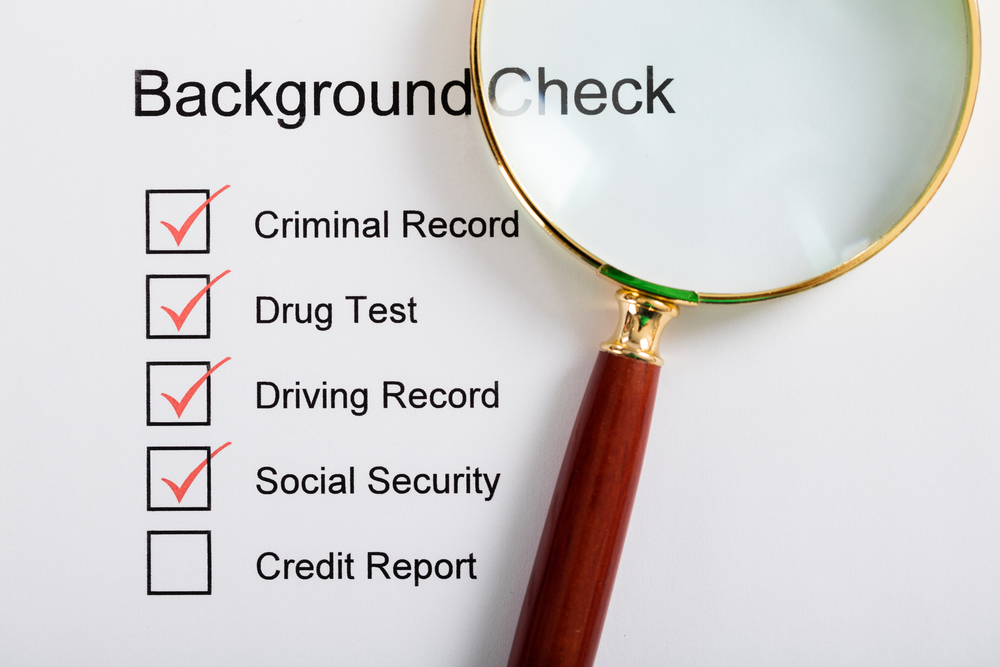Nowadays, most companies conduct background checks as a condition of employment for prospective hires. Background checks aren’t just a necessary part of the hiring process—they also help companies reduce hiring risks by identifying individuals with a criminal history and verifying education and employment history.
However, simply doing background checks doesn’t reduce risk. If background checks aren’t conducted by a background screening company skilled in keeping your company in regulatory compliance, the risks actually increase.
The chances of conducting noncompliant background checks or running afoul of regulatory agencies are not as low as some might think. One study found that lawsuits related to Fair Credit Reporting Act (FCRA) violations have increased by 150% in the last 10 years, and many are related to unlawful background checks.
Navigating the complex maze of regulations that vary from state to state can overwhelm any employer, especially if you lack the right resources and support to guide you. To avoid the risks associated with conducting background checks, it’s necessary to take the following actions:
1. Understand the Compliance Risks
Any background screening program needs a strong compliance component to fully protect the organization from risk. Background screening that isn’t in compliance with ever-changing federal and state laws, such as the FCRA, “ban the box,” and salary history bans, can open the organization to lawsuits, fines from regulatory bodies, and reputational risk.
Case in point: A recent federal Consumer Financial Protection Bureau (CFPB) lawsuit found that a background screening company violated the FCRA by failing to conduct accurate background checks and reporting misinformation on candidate background check reports. The result of the errors included millions of dollars in fines for the background check company, as well as the possibility of subsequent litigation for its clients—not to mention reputational damage to both.
Cases like the CFPB lawsuit also highlight the impact of poor background screening on job candidates. Candidates can be denied job offers based on the results of inaccurate background checks, sometimes without knowing it. When that happens, the organization is deprived of a potentially great hire and can be exposed to adverse action lawsuits. Compliance risk is real, and its effects can be biting if your background screening company is ineffective in helping you manage it.
2. Seek Guidance from a Trusted Partner
Background screening is more complex than it looks. You may not be able to understand all the nuances of every regulation and law out there, but you can stay informed and avoid the associated risks with the help of a trusted partner.
An effective background screening partner has the heart of a teacher and doesn’t just advise but also guides. When you don’t know which questions to ask in order to protect the organization, your background screening partner can point out new developments and ask the questions that will help you anticipate and overcome regulatory obstacles.
With a background screening partner that continuously monitors the regulatory background check landscape for your industry, you can stay educated and informed about:
- New laws that require changes to your application, interview, or hiring process
- Location-specific delays that will impact the timing of criminal background searches
- Updates to required disclosure and authorization forms
3. Encourage Key Stakeholder Involvement
Although HR often has primary responsibility for facilitating background checks, other internal stakeholders should play a role in developing and executing the company’s background screening program. Different stakeholders will have different needs and requirements from their company background screening program.
For example, legal and risk team members should work together with HR to provide adequate focus on program compliance, as well as cost, turnaround time, and candidate experience. When key stakeholders have equal ownership of the background screening program, they can work together to mitigate risks in the following areas:
- Communicating and storing disclosure and authorization forms
- Updating background check and drug screening policies
- Taking adverse actions based on screening results
4. Develop a Comprehensive Program
It’s important to avoid working with background check companies that promise the lowest price or the quickest turnaround time, often at the expense of quality or compliance. Instead, work with a reputable background check partner that can help you examine your background screening activities for efficiency, quality, compliance, and overall effectiveness.
By taking a comprehensive view of all background check activities and related workflows, you’ll be well positioned to develop a program that avoids legal and compliance risks. Moreover, with a comprehensive program in place, you can more easily conduct regular reviews and upgrade your program for compliance and efficiency as needed.
The growing number of lawsuits highlights the risks associated with conducting background checks. In addition, existing laws are changing, and new ones are being created all the time, making background check compliance a critical issue that can’t be overlooked.
When you take the time to involve key stakeholders and select a background check company that helps you navigate background check compliance risks, you can successfully develop a comprehensive background screening program that is both high quality and fully compliant.
 A 30-year veteran of the investigative industry, Greg Dubecky is President of Corporate Screening in Cleveland, Ohio. The company was founded in 1987 as an investigative firm and has evolved over the years to provide a comprehensive background check solution, emphasizing both innovative technology and uncompromising human effort. A trusted resource for Human Resources teams across the nation, Corporate Screening’s investigative legacy is central to its products and services. A 30-year veteran of the investigative industry, Greg Dubecky is President of Corporate Screening in Cleveland, Ohio. The company was founded in 1987 as an investigative firm and has evolved over the years to provide a comprehensive background check solution, emphasizing both innovative technology and uncompromising human effort. A trusted resource for Human Resources teams across the nation, Corporate Screening’s investigative legacy is central to its products and services. |

